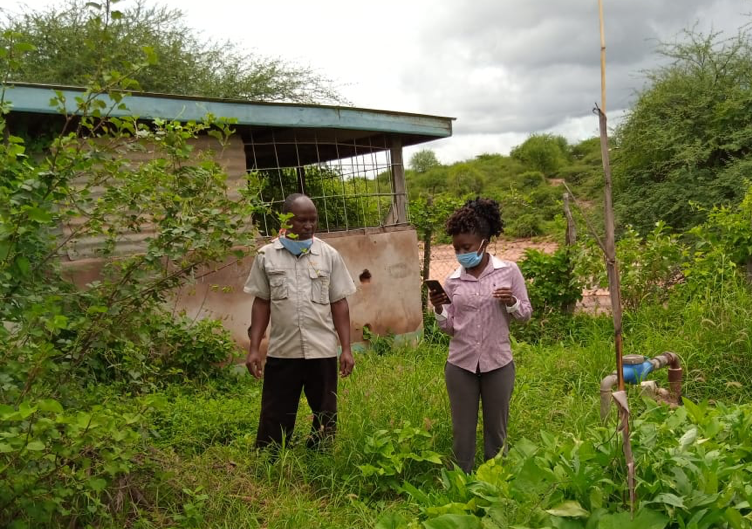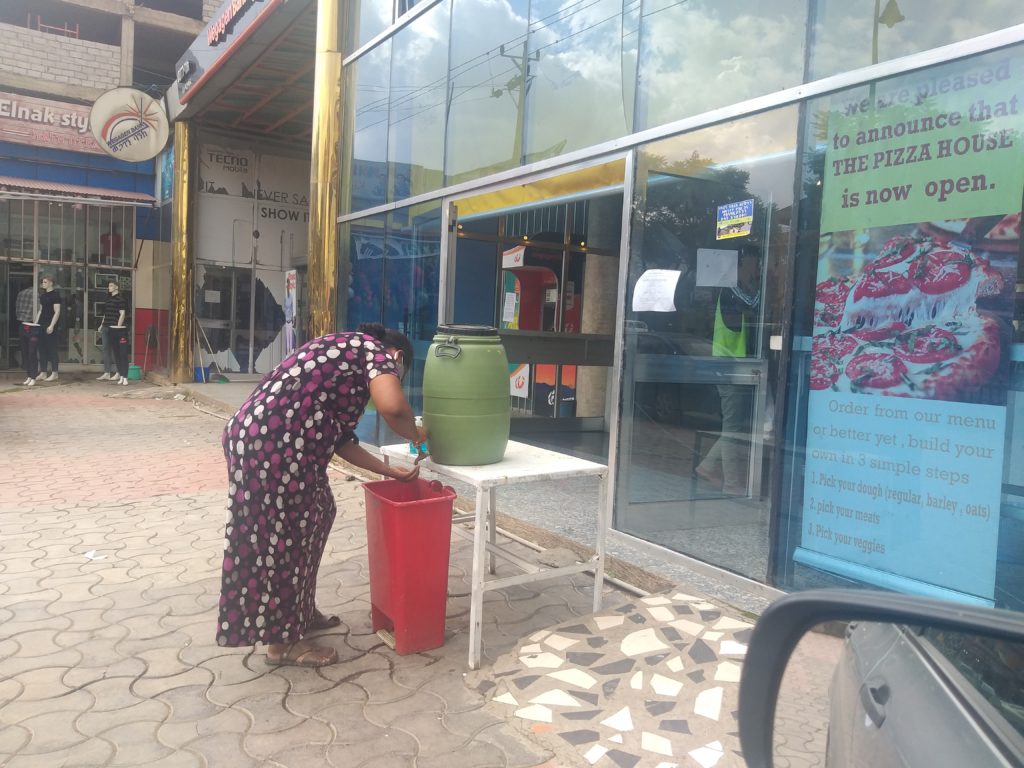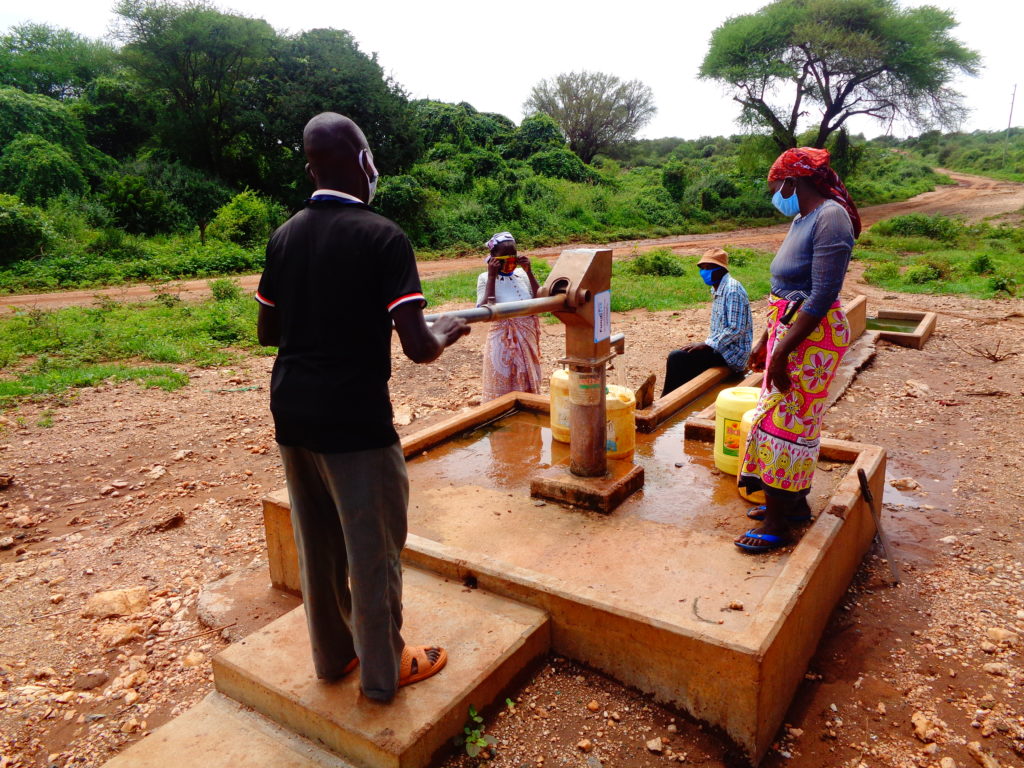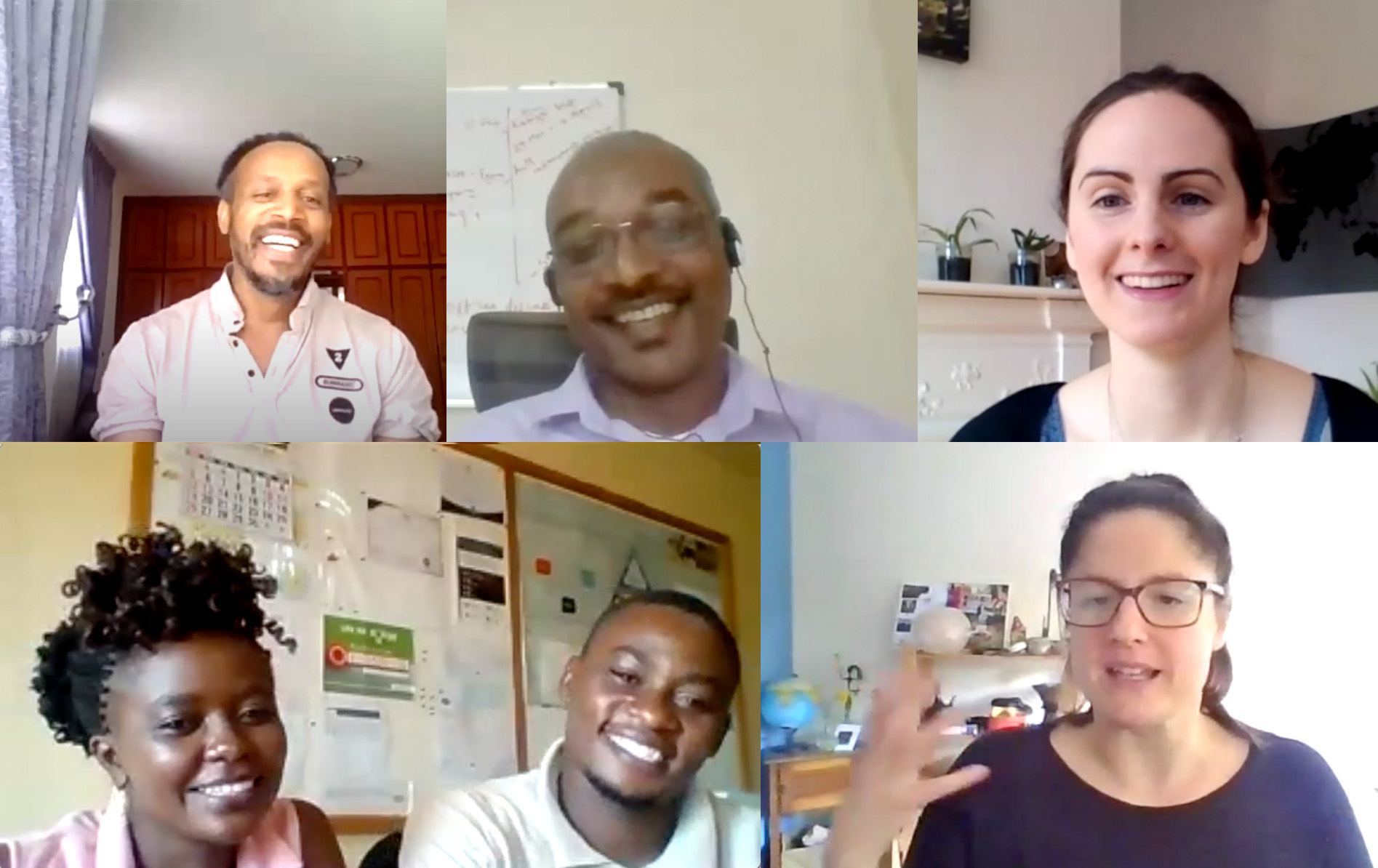Dr. Catherine Fallon Grasham and Saskia Nowicki, based on discussions with Dr Behailu Berhanu and Dr Solomon Gebrehiwot in Ethiopia and Mary Musenya Sammy and Martin Mbogo Mwaniki in Kenya
Research activities in the REACH programme have been altered due to the COVID-19 pandemic and our community has been affected across countries in different ways. In this blog, some of our early career researchers and collaborators share their experiences from Oxford, Addis Ababa and rural Kenya as they adapt to changes in their work and social lives and what responses they have seen that have inspired them.
A new way of working
All of us are adapting to living with social distancing measures that include restrictions of movement and limitations in public gatherings. The British government’s lockdown restrictions are softening but remain in force, while Ethiopia has declared a national state of emergency and Kenya has locked-down large urban areas and implemented a nation-wide curfew.
In Oxford, the whole REACH team is working from home, something many of us are used to. However, working from home has been a novel experience for our colleagues in Ethiopia. Behailu a postdoctoral researcher in hydrogeology based in Addis Ababa told us, “There is no such thing as working from home for Ethiopians, so for me, it is a huge shift.”
Working from home can be lonely and challenging but is not without benefits. Solomon, the REACH programme manager in Ethiopia told us – “I am spending more time with my family and less time in Addis traffic!” This is allowing more flexibility in his working day and time for learning new skills. For many of us, working from home means we can keep ourselves and our families safe.
In rural Kitui County, Kenya, on the other hand, Musenya and Mbogo are still travelling into rural communities regularly. They monitor water safety by collecting samples and conducting sanitary inspections. Currently, they use hand sanitiser, carry masks, and maintain social distance when inspecting water points. Yet they worry about the potential of exposing themselves and others to COVID-19.

Some communities are being cautious and have asked that monitoring visits be suspended until the COVID-19 threat passes, but Musenya and Mbogo also report that many people in their area are not adhering to government guidance. “Here people are not that serious about it. We had only one [suspected] case of the coronavirus and then the person recovered” said Mbogo, “people think they are far away from it.”
Living with social distancing
In Ethiopia, Kenya and the UK, social distancing has affected our social lives – although in different ways. Things we took for granted are not available now, such as spending time with extended family or friends, enjoying leisure activities and celebrating holidays. Fortunately, we can continue working in some capacity and video conferencing technology is helping us to stay socially connected and enabling us to do activities online.
We recognise, however, that many people in communities across the world don’t have access to such technology and their lives have been severely affected by social distancing measures due to job loss and cuts in salaries, among other things. In Kenya, markets have been closed across the country to help control the spread of COVID-19. In rural areas, markets were the main place where people gathered and could sell goods to earn a living. Suspending them has not only resulted in the loss of social interaction but also of vital income for people who are affected by poverty.
When it comes to celebrations, the Easter holidays were very unusual this year. From Kenya, Musenya shared that Easter for her “passed like a normal day,” in stark contrast to the normal festivities. For Ethiopian Orthodox Christians, Easter is usually the most celebrated holiday of the year, culturally equivalent to Christmas celebrations in the UK. Many of us would normally have attended services and travelled to be with loved ones at Easter, but this year we all stayed home.
Though religious activities continue to be affected everywhere, including Iftar celebrations during the Islamic Holy month of Ramadan, people are adapting to social distancing. Many are tuning in to online services and sharing recordings of preaching. In Kenya, Musenya mentioned that some people are also holding services within their homes and housing complexes.
Self-defence: handwashing and COVID-19
As water security researchers, we are particularly interested in how hand washing is being promoted and how practices are changing during this pandemic. In the UK, we were instructed to sing ‘Happy Birthday’ twice while washing our hands and consequently videos of celebrities washing their hands while singing went viral on social media. In Ethiopia and Kenya, handwashing is being strongly promoted by government and media, but access to safe and reliable water supplies remains a challenge.

We all agreed that we’ve seen increases in hand washing since the outbreak of the pandemic in all three countries. In Addis Ababa and rural Kenya, handwashing stations have been set up in places of worship, outside of shops and in housing complexes. Solomon told us that in Ethiopia, “Some taxis have a pot on the top of the cars so that customers can wash their hands before entering the taxis. These are people that are really thinking in creative ways!”
However, many still struggle to access handwashing facilities. Musenya and Mbogo told us that in rural Kenya, the price of water, soap, and even buckets for setting up basic handwashing stations, has increased. Musenya shared that, “people are saying it’s a new job opportunity,” and that prices have been hiked because sellers have realised that the demand is high.
In sharing our experiences, we realised that we have a common hope that this pandemic will encourage broader recognition of the importance of universal access to hygiene facilities and safe water supplies.

Uncertainty and optimism
Uncertainty about the future was a common theme across all our conversations – but we also have good reasons to remain optimistic. In Kenya, as in many other countries, rising living costs alongside lost income are pressing concerns. Musenya echoed our thoughts when she asked, “If the pandemic continues, what will happen to work, what will happen next?”
Positively, financial support in both countries is being made available. In Kenya, the government is providing elderly citizens with money transfers through their Inua Jamii Initiative, and they have announced tax relief for those earning less than KES 24,000 annually. In Ethiopia, Behailu told us that, “In Addis, the city administration is mobilising different resources. I think that this gives hope for the people.”
At a more local level, we shared stories that we’d heard from our communities that have inspired us to stay optimistic. In Addis Ababa, the owner of a barbershop closed his doors but continued to pay his employees, stating that their health was more important than his business. In Oxfordshire, people are rallying to support village pubs by committing to buying take-away food from them at least once a week.
Although social distancing is keeping many of us apart physically, this pandemic has shown us how connected we are and how much we depend on one another. In the UK, Ethiopia and Kenya our experiences are different, but we are all finding new ways to work, adjusting to changes in our social lives, and being inspired by the creativity and generosity in the communities around us.
This article is based on conversations from April 2020.

